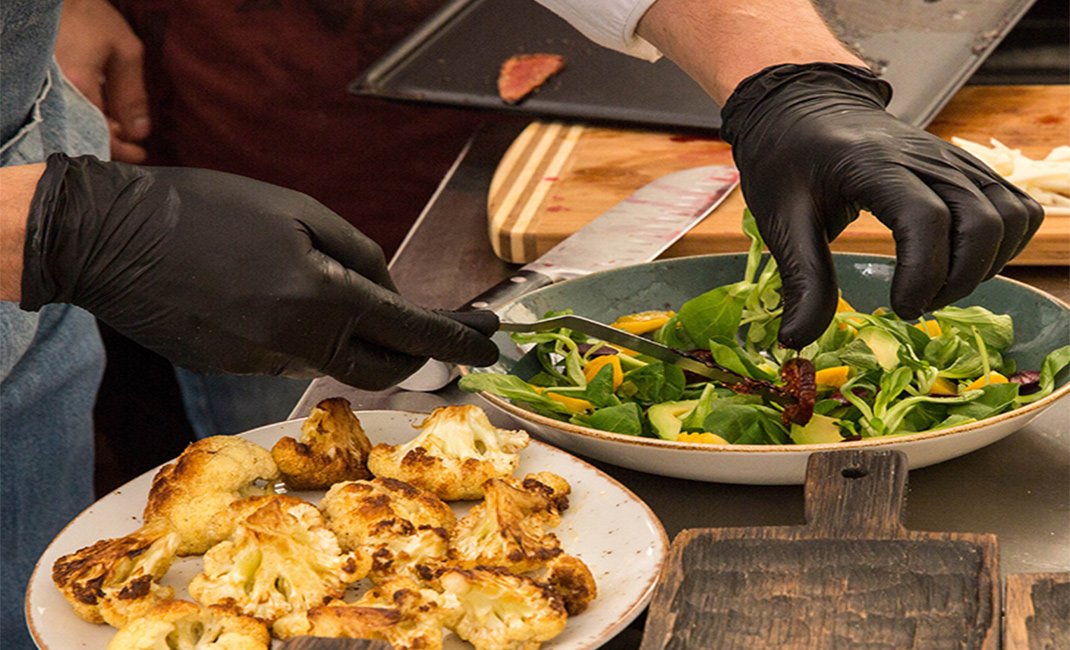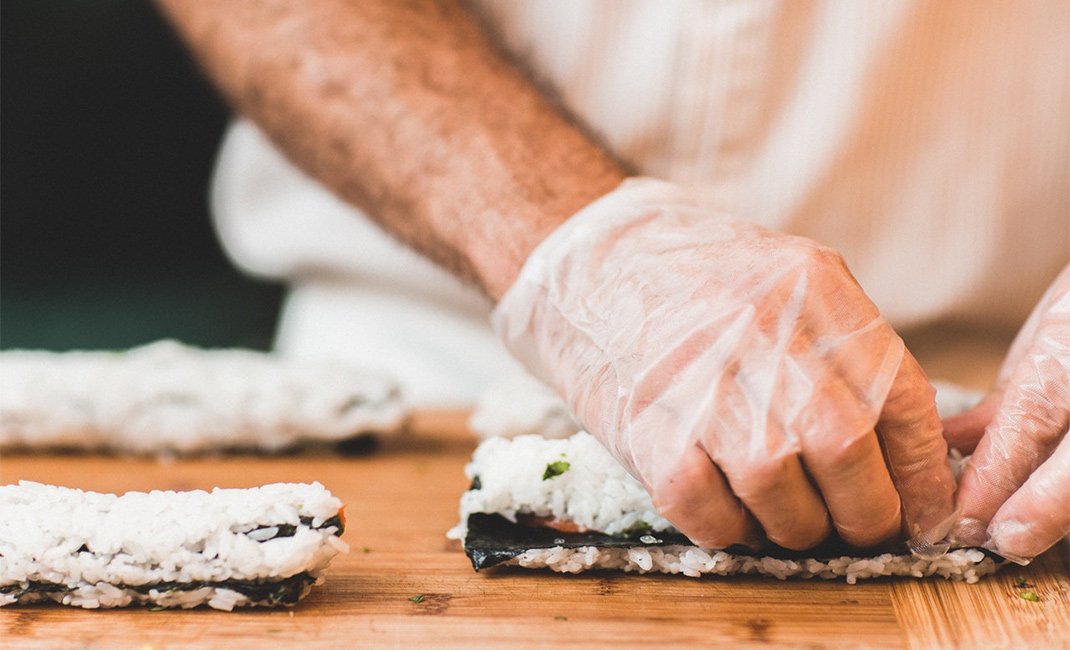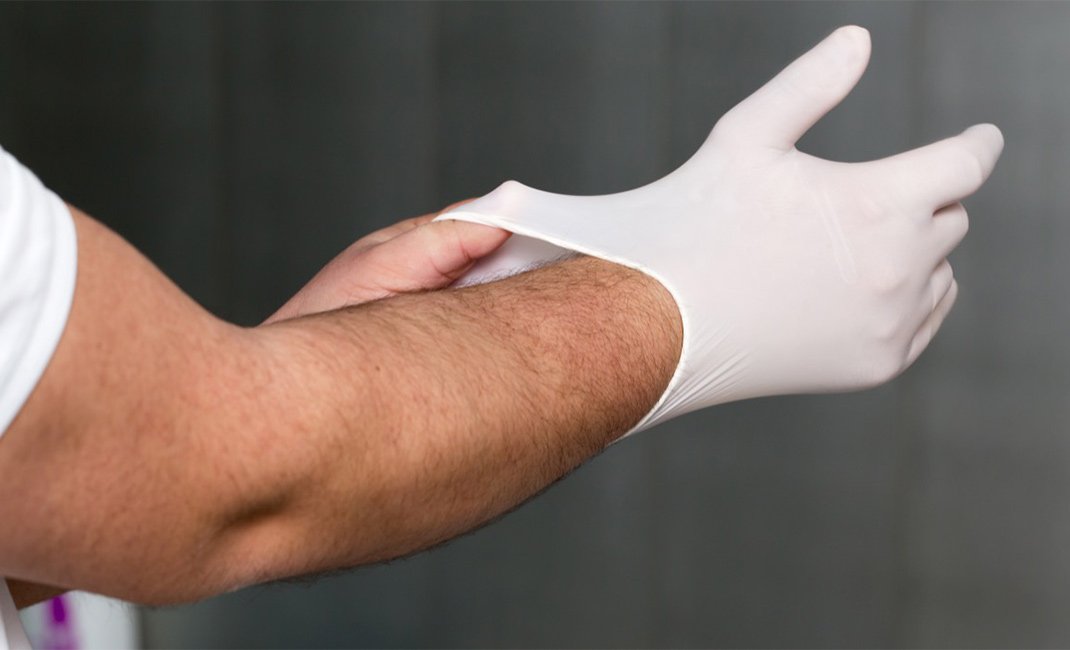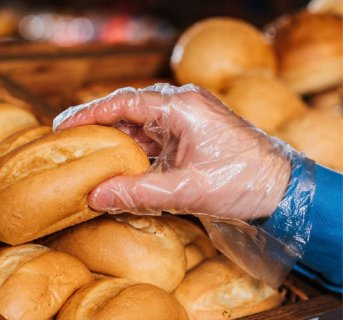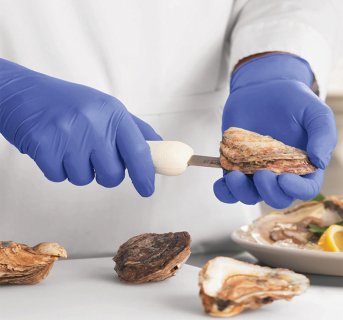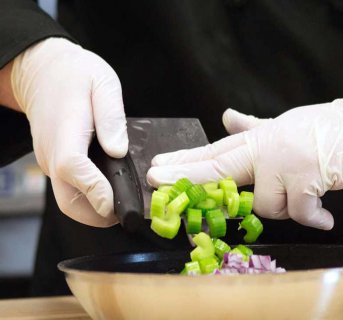HDPE gloves
PROS
■ They can be found in many thicknesses and sizes and are generally the least expensive of all gloves, especially the thin, one-size-fits-all type.
■ HDPE gloves are designed to fit and squeeze on fingers so that they don't slip off.
■ If burned, HDPE does not produce harmful chemicals such as dioxins or bisphenol, so these are characterized as environmentally friendly.
CONS
■ Thin, one-size-fits-all gloves are not so strong and tend to tear easily especially when working with food at high temperature.
■ HDPE gloves may not fit larger hands.
■ The heat-welded seams on these gloves are typically where they tend to fail.
Vinyl gloves
PROS
■ These provide a comfortable fit.
■ They are more resistant to oil than latex.
■ They can stand the heat without melting.
CONS
■ They can begin leaking if stretched too much and therefore be the reason for contamination and infections.
Nitrile gloves
PROS
■ They are less elastic than latex but are significantly more durable.
■ They provide a good level of dexterity at an affordable cost.
■ They can resist many chemicals.
■ They cannot be punctured easily.
CONS
■ Like other glove types, nitrile gloves are sensitive to alcohol degradation.
■ They have been found not to be ozone degradation resistant and not as flexible as latex.
■ Once damaged, these gloves tear easily into smaller pieces that may end up in food.
■ Nitrile gloves may contain bis(2-Ethylhexyl)phthalate, or DEHP, recognized as carcinogenic.
Natural rubber latex gloves
PROS
■ These are the most commonly used and often among the least expensive of the comfortable, flexible, and good fitting glove types.
■ Latex gloves offer good dexterity, a comfortable fit, a good sense of touch, and can withstand high heat.
CONS
■ Many people could be allergic to latex or to the chemical additives used in the manufacturing process.
■ Latex particles and other chemicals can slough off into food when the chlorinated glove surface breaks.
■ Latex gloves are not oxygen, ozone, or ultraviolet light-resistant and therefore can deteriorate in time or when exposed to oils and solvents such as alcohol
(www.janasafety.gr)


